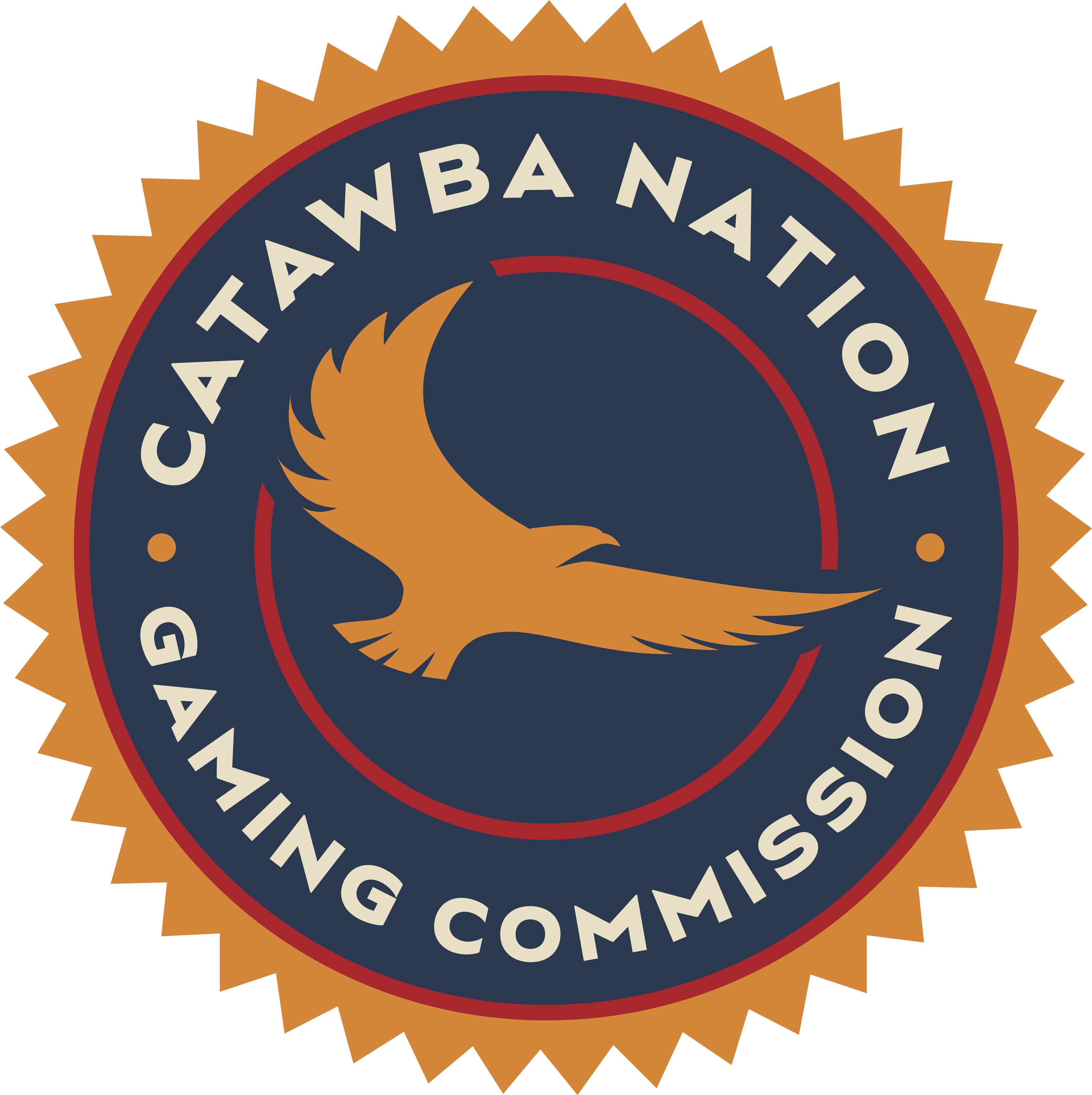A gaming license is the license issued by the Catawba Gaming Commission that permits the holder to work for or provide services to the Two-Kings Casino. A permanent gaming license may only be issued once a person or entity has completed the application process, undergone a thorough background investigation, and been found to satisfy applicable suitability requirements.
The Nation’s Gaming Ordinance and Tribal-State Gaming Compact require employees who perform certain tasks or have access to sensitive information, areas, or systems to be licensed. In addition, the Gaming Commission, pursuant to the Gaming Ordinance, and the Gaming Compact require certain vendors and their employees to be licensed. Please contact the Licensing Department of the Catawba Gaming Commission for additional information.
The Catawba Gaming Commission is the primary regulator of the Catawba Indian Nation’s gaming activities. The Nation authorized the establishment of the Catawba Gaming Commission when it enacted its Gaming Ordinance in February 2020. As the primary regulator of the Nation’s gaming activities, the Catawba Gaming Commission is responsible for protecting game integrity, ensuring compliance, and guarding the reputation of the Nation and the Two-Kings Casino. It accomplishes these responsibilities by promulgating regulations, preventing wrongdoing, licensing individuals to prevent bad actors from corrupting the industry, monitoring through surveillance, and protecting game integrity. Some of the wide-ranging duties of the Catawba Gaming Commission include catching game cheats, testing gaming equipment, watching for policy violations, enforcing health and safety standards, and resolving disputes.
The Catawba Gaming Commission may be reached at ATTN: Catawba Nation Gaming Commission, 996 Avenue of the Nations, Rock Hill SC 29730 or (803) 366-4792.
The Licensing Department of the Catawba Gaming Commission conducts background investigations in accordance with applicable law. The federal Indian Gaming Regulatory Act (“IGRA”), the Nation’s Gaming Ordinance, and the Tribal-State Gaming Compact require background investigations be conducted for a variety of circumstances. The regulations of the National Indian Gaming Commission, the Nation’s Gaming Ordinance, and Tribal-State gaming compact set forth the specific information that must be obtained. Note that all information provided is kept confidential and is used to make an informed and objective decision on the suitability of the applicant.
Omissions on the gaming license application or deliberate misstatements to investigators during the investigation process may result in your disqualification, regardless of the nature or reason for those omissions/misstatements. It is, therefore, imperative that you provide complete and accurate information to the Gaming Commission during the backgrounding process. A good rule of thumb is when in doubt, disclose the information.
A gaming license is a privilege, not a right. This would be determined on a case-by-case basis. You will be required to provide relevant documentation along with your gaming license application sufficient for the Gaming Commission to determine your suitability for a license.
A gaming license is a privilege, not a right. This would be determined on a case-by-case basis. You will be required to provide relevant documentation along with your gaming license application sufficient for the Gaming Commission to determine your suitability for a license.
A gaming license is a privilege, not a right. This would be determined on a case-by-case basis. You will be required to provide relevant documentation along with your gaming license application sufficient for the Gaming Commission to determine your suitability for a license.
Generally, though, an applicant with such history would be denied a gaming license.

